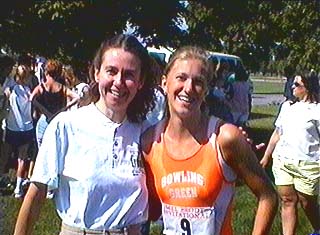|
|
|
Former PostDocs
- Dr. Alisdair Daws Software Development Manager, Australian Council for Educational Research in Melbourne, Australia

- Huber R, Daws A, Tuttle SB & JB Panksepp 2001 Quantitative behavioral techniques for the study of crustacean aggression in: K Wiese and M Schmidt (eds.): Physiology of the crustacean nervous system. Springer, Berlin
- Dr. Antonio Alcaro
Santa Lucia Foundation, European Centre for Brain Research (CERC) in Rome, Italy
- Alcaro A, Huber R & J Panksepp. 2007. Behavioral functions of the mesolimbic dopaminergic system: an affective neuroethological perspective. Brain Research Rev. 56(2): 283-321 - full text
- Dr. Thomas Nathaniel Assistant Professor, Science Department, Marywood University, Scranton, PA
- Nathaniel T, Panksepp J & R Huber. 2009. Effects of a single and repeated morphine treatment on conditioned and unconditioned behavioral sensitization in Crayfish. Behavioural Brain Research (in press) - full text
- Nathaniel T, Panksepp J & R Huber. 2009. Drug-seeking behavior in an invertebrate system: evidence of morphine-induced reward, extinction and reinstatement in crayfish. Behavioural Brain Research 197 331–338 - full text
Former Graduate Students
- Karlo Hock (Ph.D. 2004): explored mathematical models of fighting behavior. He then served on the faculty of the Division of Molecular Medicine, Rudjer Boskovic Institute, Zagreb, Croatia
and now works as a research associate at Ecology, Evolution and Natural Resources at Rutgers
University
- Hock K & R Huber. 2006. Modeling the acquisition of social rank in crayfish: winner and loser effects and self-structuring properties. Behaviour 143: 325-346 - full text
- Hock K & R Huber. 2007. Effects of fighting decisions on formation and structure of dominance hierarchies. Marine and Freshwater Behaviour and Physiology 40(2): 153-169 - full text
- Hock K & R Huber. 2009. Models of Winner and Loser Effects: A Cost-Benefit Analysis. Behaviour 146: 69-87 - full text
- Adam Stocker (M.Sc. 2002): conducted research on the importance of hunger state and presence of food for aggression in crayfish. During his time in my lab Adam has received a variety of awards and honors, including a BGSU academic partial scholarship, a Biological Sciences Assistantship, The International Fraternity of Phi Gamma Delta's Foundation Scholarship, Phi Gamma Delta Chairperson of the Year, and Phi Gamma Delta's Highest New Member G.P.A. Honorarium. Adam has also been inducted into to the Beta Tau Circle of Omicron Delta Kappa. He was also selected to participate in the course "Tropical Neuroethology" at the Institute of Neurobiology, University of Puerto Rico. For his master's thesis he used suppression subtractive hybridization to identify gene products that are up- or down-regulated in crayfish nervous tissue following sub-chronic (1 week) serotonin (5HT) treatment. He has received an NIH predoctoral fellowship and completed his PhD in Neuroscience at Northwestern University, Chicago.
He is now a postdoctoral research associate at the Salk Insitute for Biological Studies in San Diego
- Stocker AM & R Huber Hunger and presence of a food cue influence aggressive strategies in crayfish, Orconectes rusticus. Ethology 107(8): 727-736 - full text
- Katie Drerup (M.Sc. 2002) was the Outstanding Senior in Biological Sciences at BGSU in 2000/01. She has also been named to the Dean's list, the Alpha Lambda Delta, the Omicron Delta Kappa, and the Golden Key honor societies, she has received a range of scholarship including the Jean Pasakarnis Buchanan, the Biology Alumni, the University Professor's, and the Van Wert County Foundation scholarship. As an honors student in my lab she explored the patterns of hierarchy formation in groups of individuals and the importance of chronic treatment with serotonin for rank and social structure. For her master's thesis she explored the effects of chronic serotonin on agonistic behavior during hierarchy formation. She received her PhD in Neuroscience from Northwestern University, Chicago, and is currently a postdoctoral fellow at the Department of Cell and Developmental Biology at the Oregon Health Sciences Center.
- Panksepp JB, Yue Z, Drerup C & R Huber. 2003. Amine neurochemistry and aggression in crayfish. Microscopy Research & Technique 60: 360-368 - full text
- Jules Panksepp (M.Sc. 2002): behavior and neurochemistry. Jules wrote his honors thesis on the behavioral effects of chronic amine depletions using neurotoxins. During his tenure in my lab he received the International Zdenek Klein Award for the best paper published in 2002 in the journal Neuroendocrinology. He was inducted into to the Beta Tau Circle of Omicron Delta Kappa and Phi Beta Kappa and has received a Sigma Xi Poster Award in 2000. He has been a finalist for the oustanding graduate teaching assistant award in 2001 and he has been awarded a research fellowship for 2001/02 from the Center for Neuroscience, Mind & Behavior. He has received his PhD from the Neuroscience Program at University Wisconsin, Maddison.
He is currently a postdoctoral fellow at the Department of Behavioral Neuroscience
at Oregon Health Sciences Center
- Panksepp JB & R Huber. 2004. Ethological analyses of crayfish behavior: A new invertebrate system for measuring the rewarding properties of psychostimulants. Behavioural Brain Research 153: 171-180 - full text
- Panksepp JB, Yue Z, Drerup C & R Huber. 2003. Amine neurochemistry and aggression in crayfish. Microscopy Research & Technique 60: 360-368 - full text
- Panksepp JB & R Huber. 2002. Long-term changes in serotonin function: dynamic neurochemical properties in agonistic behavior of the crayfish Orconectes rusticus. J. Neurobiol. 50(4): 276-290 - full text
- Huber R, Panksepp JB, Yue Z, Delago A & P Moore. 2001. Dynamic interactions of behavior and amine neurochemistry during acquisition and maintenance of social rank in crayfish. Brain, Behav. Evolution 57: 271-282 - full text
- Huber R., A Daws, SB Tuttle & JB Panksepp 2001 Quantitative behavioral techniques for the study of crustacean aggression in: K Wiese and M Schmidt (eds.): Physiology of the crustacean nervous system. Springer, Berlin
- Panksepp, J & JB Panksepp. 2001. A continuing critique of evolutionary psychology: Seven sins for seven sinners, plus or minus two. Evolution and Cognition 7(1): 1-25
- Panksepp, J & JB Panksepp. 2000. Seven sins of evolutionary psychology Evolution and Cognition. 6(2):108-131
- Angelica Pytel is now an Assistant Professor of Biology at Hillsdale College
- Karen Davis (M.Sc. 2002) Since completing her Master's Thesis in my lab she has completed a PhD in Experimental Psychology at University Tennessee at Knoxville
- Davis K & R Huber. 2007. Activity patterns, behavioural repertoires, and agonistic interactions of crayfish: A non-manipulative field study. Behaviour 144: 229-247 - full text
- Zhaoxia Yue (M.Sc. 2001) worked for her Master's thesis on amine correlates of social status. With her research she has won a Sigma Xi Poster Award 2000 and the Charles E. Shanklin Award for Research Excellence for the oustanding graduate project in Sciences and Mathematics in 2000/01. She is a Research Technician at Fred Hutchinson Cancer Research Center, Seattle, WA with experience in high-throughput genomic technologies
- Huber R, Panksepp JB, Yue Z, Delago A & P Moore. 2001. Dynamic interactions of behavior and amine neurochemistry during acquisition and maintenance of social rank in crayfish. Brain, Behav. Evolution 57: 271-282 - full text
- Panksepp JB, Yue Z, Drerup C & R Huber. 2003. Amine neurochemistry and aggression in crayfish. Microscopy Research & Technique 60: 360-368 - full text
 Christoph Goessmann (1997) complete his Masters project in my lab where he has explored the behavioral processes that form and maintain hierarchical structures in crayfish dominance. He now works in the pharmaceutical industry for Aventis Pasteur Merieux Connaught. Christoph Goessmann (1997) complete his Masters project in my lab where he has explored the behavioral processes that form and maintain hierarchical structures in crayfish dominance. He now works in the pharmaceutical industry for Aventis Pasteur Merieux Connaught.
- Gössmann C, C Hemelrijk & R Huber. 2000 The formation and maintenance of crayfish hierarchies: behavioral and self-structuring properties. Behav. Ecol. Sociobiol. 48: 418-428 - full text
- Antonia Delago (1997) did her Master's Thesis in my lab where she focused on the
 behavioral consequences of serotonin pharmacology using chronic treatment with the re-uptake inhibtor fluoxetine (i.e. Prozac).. She then completed a Ph.D. at Queen Mary & Westfield College, University of London. Following a postdoctoral fellowship at Hokkaido University, Japan, she has settled in Israel where she works as a science writer in Tel Aviv behavioral consequences of serotonin pharmacology using chronic treatment with the re-uptake inhibtor fluoxetine (i.e. Prozac).. She then completed a Ph.D. at Queen Mary & Westfield College, University of London. Following a postdoctoral fellowship at Hokkaido University, Japan, she has settled in Israel where she works as a science writer in Tel Aviv
- Huber R, K Smith, A Delago, K Isaksson & EA Kravitz. 1997. Serotonin and aggressive motivation in crustaceans: altering the decision to retreat. Proc. Nat. Acad. Sci. 94: 5939-5942 - full text
- Huber R & A Delago. 1998. Serotonin alters decisions to withdraw in fighting crayfish, Astacus astacus: the motivational concept revisited. J. comp. Physiol. A 182(5): 573-583 - full text
- Huber R, Panksepp JB, Yue Z, Delago A & P Moore. 2001. Dynamic interactions of behavior and amine neurochemistry during acquisition and maintenance of social rank in crayfish. Brain, Behav. Evolution 57: 271-282 - full text
Former Undergraduate Students
 |
|
BGSU Runner Lisa Schroeder with famed UMichigan Runner Laurel Park |
Lisa Schroeder aggressive behavior, significance of claw size. While in my lab Lisa has received many awards including the Freshman Alumni Biology Scholarship (1997), Sophomore Alumni Biology Scholarship (1999), McKinney-Whitwer Biology Scholarship (1999), University Achievement Scholarship (1999), Jean Pasakarnis Buchanan Biology Scholarship (2000), Suzanne K. Miller Undergraduate Research Assistantship for Biology (2000), the General Chemistry Award (1998-1999), Academic Honors Student Athlete Award for cross-country/track and field (1997-1999), the MAC Commissioner's Award for cross-country/track and field (1998-1999) and was selected a Barry M. Goldwater Scholarship nominee (1999-2000) and for Who's Who Among Students in American Universities and Colleges (2000). Lisa has been inducted into the Phi Eta Sigma Honor Society, the Alpha Lambda Delta National Honor Society, the Golden Key National Honor Society, the Beta Tau Circle of Omicron Delta Kappa and was a cross-country representative for the Student-Athlete Advisory Committee. She completed the Graduate Biotechnology program at Case Western Reserve University
- Schroeder L & R Huber 2001 Fighting strategies in small and large individuals of the crayfish, Orconectes rusticus. Behaviour 138: 1437-1449 - full text
- Sarah Tuttle: peptidergic modulation of aggression. Sarah has won the Oustanding Poster Award at the Sigma Xi Undergraduate Research Competition 2000
and has moved to Spain.
- Huber R, Daws A, Tuttle SB & JB Panksepp 2001 Quantitative behavioral techniques for the study of crustacean aggression in: K Wiese and M Schmidt (eds.): Physiology of the crustacean nervous system. Springer, Berlin
last updated: 4/20/10 |
|


 Christoph Goessmann (1997) complete his Masters project in my lab where he has explored the behavioral processes that form and maintain hierarchical structures in crayfish dominance. He now works in the pharmaceutical industry for Aventis Pasteur Merieux Connaught.
Christoph Goessmann (1997) complete his Masters project in my lab where he has explored the behavioral processes that form and maintain hierarchical structures in crayfish dominance. He now works in the pharmaceutical industry for Aventis Pasteur Merieux Connaught.
 behavioral consequences of serotonin pharmacology using chronic treatment with the re-uptake inhibtor fluoxetine (i.e. Prozac).. She then completed a Ph.D. at Queen Mary & Westfield College, University of London. Following a postdoctoral fellowship at Hokkaido University, Japan, she has settled in Israel where she works as a science writer in Tel Aviv
behavioral consequences of serotonin pharmacology using chronic treatment with the re-uptake inhibtor fluoxetine (i.e. Prozac).. She then completed a Ph.D. at Queen Mary & Westfield College, University of London. Following a postdoctoral fellowship at Hokkaido University, Japan, she has settled in Israel where she works as a science writer in Tel Aviv